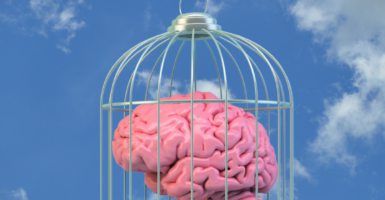What Are the Different Stages of Dementia: A Comprehensive Outline

In this article:
Quick summary:
Dementia progresses through three main stages: early-stage where individuals experience memory lapses and difficulty with complex tasks while maintaining independence; middle-stage characterized by increased disorientation, communication problems, and need for daily assistance; and late-stage involving profound cognitive decline requiring full-time care. While Alzheimer’s follows a gradual pattern, vascular dementia shows step-like changes, and other types like Lewy body dementia have unique profiles—understanding these stages helps families and healthcare professionals plan appropriate care and set realistic expectations throughout the dementia journey.
Understanding Dementia Progression
The Continuum of Cognitive Decline
Dementia is a progressive condition that gradually affects memory, thinking, and behaviour.
It does not appear all at once but unfolds in stages, beginning with mild cognitive issues and advancing to severe mental and physical decline. Understanding these stages helps families, carers, and professionals recognise what to expect and how to plan care.
Why staging matters: It provides a roadmap for treatment, care planning, and setting realistic expectations. Several staging systems exist to describe this journey.
- Dementia is a neurodegenerative condition
- Progression rates vary, but all types involve increasing cognitive decline
- Clinicians use staging to monitor and support patients effectively
Common Staging Systems
There are several widely used scales to define the stages of dementia, each offering a slightly different focus.
- Global Deterioration Scale – Also known as the Reisberg Scale, it outlines 7 stages from no cognitive decline to very severe cognitive decline
- Clinical Dementia Rating – Rates impairment from 0 (none) to 3 (severe) across memory, orientation, judgment, community affairs, and self-care
- Functional Assessment Staging– Focuses on functional abilities, especially for those with Alzheimer’s
Each system helps health and care professional alongside families track progression, plan interventions, and make decisions about care.
Brain Changes Throughout Progression
As dementia advances, structural and functional brain changes become more pronounced and impact daily functioning.
- Early stages: Subtle loss of synapse function and memory-related brain region shrinkage (e.g., hippocampus)
- Middle stages: Widespread neuron loss and impaired communication between brain areas
- Late stages: Severe brain atrophy, especially in cortical and subcortical regions
Biomarkers (like amyloid plaques and tau tangles in Alzheimer’s) can help confirm diagnosis and track disease. However, progression varies significantly between individuals due to genetic, lifestyle, and coexisting medical factors.

Early Phases of Dementia
Mild Cognitive Impairment (MCI)
MCI is a transitional state between normal ageing and dementia, marked by noticeable but not disabling cognitive changes.
- Different from normal ageing – Forgetfulness becomes more frequent and noticeable
- Pre-dementia stage – Many people with MCI progress to dementia, though not all do
- Risk factors – Age, genetics (like ApoE4), cardiovascular health, and low cognitive reserve
- Detection – Tools like the MoCA or MMSE can help detect early changes
Early-Stage Dementia (Mild Dementia)
In this stage, people may notice memory lapses and begin having difficulty with complex tasks, but can still live mostly independently.
- Forgetting recent events or names
- Trouble planning or organising
- Subtle changes in mood or personality
- Diagnosis usually confirmed via clinical assessments and neuroimaging
Daily Living in Early-Stage Dementia
Day-to-day independence is mostly preserved, but adjustments can help.
- May struggle at work due to multitasking or memory lapses
- Friends and family may notice social withdrawal
- Difficulty managing bills or appointments
- Driving may still be possible but should be monitored
- Tools: calendars, reminder apps, and routines can maintain independence
Middle to Late Dementia Progression
Middle-Stage Dementia (Moderate Dementia)
This stage brings increased memory loss, communication issues, and the need for assistance with daily tasks.
- More frequent disorientation to time and place.
- Difficulty finding words or following conversations
- Disrupted sleep patterns
- Behavioural symptoms like agitation, paranoia, or delusions
Care Needs During Middle Stage
Greater support is required at this stage, both physically and emotionally.
- Help needed with bathing, dressing, and meals
- Home safety becomes a major concern
- Behavioural symptoms may need medication or therapy
- Legal and financial planning (e.g., power of attorney) becomes urgent
- Carer stress increases; respite or external support often essential
Late-Stage Dementia (Severe Dementia)
Profound cognitive and physical decline characterises this final stage. Full-time care is typically required.
- Loss of ability to communicate clearly
- May not recognise family members
- Difficulty swallowing, incontinence, and high risk of infections
- Immobility and increased risk of pressure sores
Advanced Care Requirements
Palliative and comfort-focused care becomes the priority.
- 24/7 care either at home or in a residential setting
- Feeding support and hydration monitoring
- Pain relief and comfort measures
- Support with dignity and end-of-life planning
- Sensitive discussions about advanced directives and care goals
Dementia Stages Across Different Types
Alzheimer’s Disease Progression
Alzheimer’s disease typically progresses in a slow, predictable pattern starting with memory loss.
- Preclinical: Brain changes begin before symptoms
- Early stage: Forgetfulness, disorientation
- Middle stage: Language issues, mood swings, daily task difficulties
- Late stage: Loss of mobility, speech, and recognition
- Average life expectancy: 8–10 years post-diagnosis
Vascular Dementia Stages
Progression may be step-like due to strokes or sudden vascular events, differing from Alzheimer’s gradual decline.
- Sudden drops in cognition after strokes or TIAs
- Fluctuating attention and confusion
- May involve physical symptoms like weakness or imbalance
- Mixed dementia (vascular + Alzheimer’s) is common
- Prevention includes managing blood pressure, cholesterol, and lifestyle
Lewy Body and Frontotemporal Dementia Staging
These forms have distinct patterns and require unique management approaches.
- Lewy Body Dementia :
- Early: Visual hallucinations, attention fluctuations
- Mid: Parkinson like symptoms, REM sleep issues
- Late: Severe cognitive and physical decline
- Frontotemporal Dementia :
- Behavioural variant: Personality changes, impulsivity
- Language variant: Loss of speech or understanding
- Early onset often in 50s–60s
Each type requires a tailored approach to care, based on the specific symptoms and progression profile.
How to get started with Dementia care?
When you’re just starting your care journey, it’s important to answer as many questions as possible to ensure you make an informed choice. Please do reach out to our experienced care team who will be able to answer any questions you may have.
If you’re ready to find out what home care options are available in your area:
or talk to our care team today on 01865 951 350



